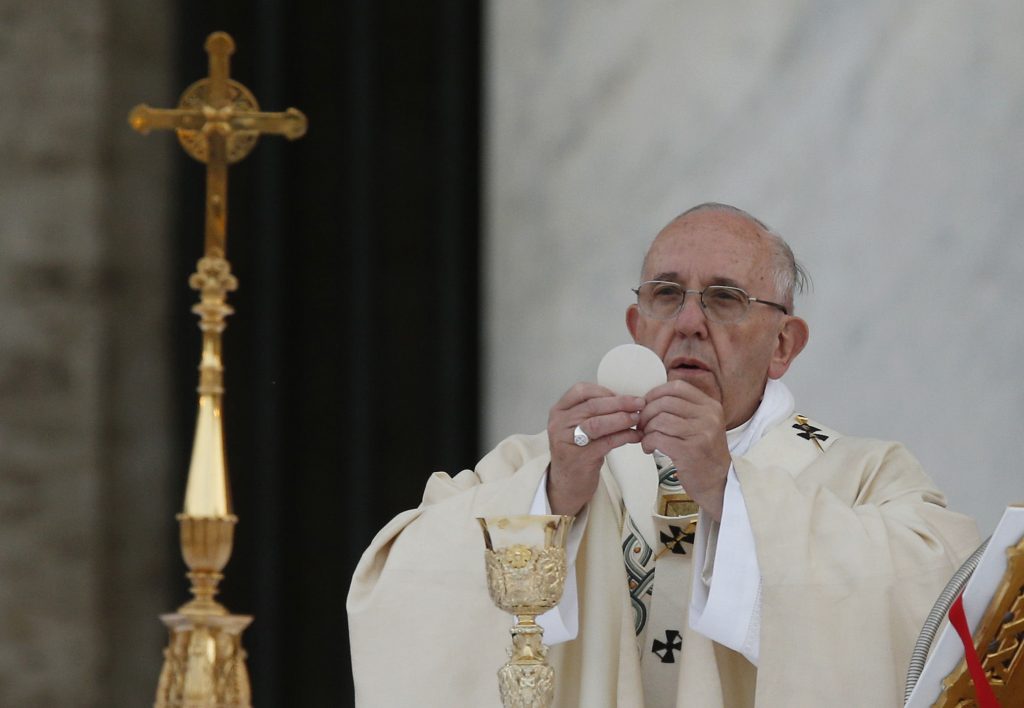The Eucharist is given to us as a challenge and a promise. That’s how Jesus presents it in the Gospel.
He doesn’t make it easy for those who hear him. They are repulsed and offended at his words. Even when they begin to quarrel, he insists on describing the eating and drinking of his flesh and blood in starkly literal terms.
Four times in the reading, Jesus uses a Greek word — trogein — that refers to a crude kind of eating, almost a gnawing or chewing (see John 6:54,56,57,58).
He is testing their faith in his Word, as the first reading describes God testing Israel in the desert.
The heavenly manna was not given to satisfy the Israelites’ hunger, as Moses explains. It was given to show them that man does not live by bread alone, but by every word that comes from the mouth of God.
In the psalm, too, we see a connection between God’s Word and the bread of life. We sing of God filling us with “finest wheat” and proclaiming his Word to the world.
In Jesus, “the living Father” has given us his Word come down from heaven, made flesh for the life of the world.
Yet as the Israelites grumbled in the desert, many in the Gospel cannot accept that Word. Even many of Jesus’ own followers abandon him after this discourse (see John 6:66). But his words are Spirit and life, the words of eternal life (see John 6:63,67).
In the Eucharist we are made one flesh with Christ. We have his life in us and have our life because of him. This is what Paul means in the epistle when he calls the Eucharist a “participation” in Christ’s body and blood. We become in this sacrament partakers of the divine nature (see 1 Peter 2:4).
This is the mystery of the faith that Jesus asks us to believe. And he gives us his promise: that sharing in his flesh and blood that was raised from the dead, we, too, will be raised up on the last day.
Scott Hahn is founder of the St. Paul Center for Biblical Theology, stpaulcenter.com.

